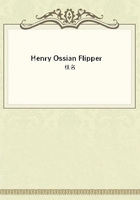
第45章
RESUME.
JULY 1, 1876! Only one year more; and yet how wearily the days come and go! How anxiously we watch them, how eagerly we count them, as they glimmer in the distance, and forget them as they fade! What joyous anticipation, what confident expectation, what hope animates each soul, each heart, each being of us! What encouragement to study this longing, this impatience gives us, as if it hastened the coming finale! And who felt it more than I? Who could feel it more than I? To me it was to be not only an end of study, of discipline, of obedience to the regulations of the Academy, but even an end to isolation, to tacit persecution, to melancholy, to suspense. It was to be the grand realization of my hopes, the utter, the inevitable defeat of the minions of pride, prejudice, caste. Nor would such consummation of hopes affect me only, or those around me. Nay, even I was but the point of "primitive disturbance," whence emanates as if from a focus, from a new origin, prayer, friendly and inimical, to be focused again into realization on one side and discomfiture on the other.
My friends, my enemies, centre their hopes on me. Itreat them, one with earnest endeavor for realization, the other with supremest indifference. They are deviated with varying anxiety on either side, and hence my joy, my gratitude, when I find, July 1, 1876, that I am a first-classman.
A first-classman! The beginning of realization, for had I not distanced all the colored cadets before me? Indeed I had, and that with the greater prospect of ultimate success gave me double cause for rejoicing.
A first-classman! "There's something prophetic in it,"for behold"The country begins to be agitated by the approaching graduation of young Flipper, the colored West Point cadet from Atlanta. If he succeeds in getting into the aristocratic circles of the official army there will be a commotion for a certainty. Flipper is destined to be famous."Such was the nature of the many editorials which appeared about this time, summer of '76. The circumstance was unusual, unexpected, for it had been predicted that only slaughter awaited me at that very stage, because Smith had failed just there, just where I had not.
"Henry Flipper, of Atlanta, enjoys the distinction of being the only negro cadet that the government is cramming with food and knowledge at West Point. He stands forty-sixth in the third class, which includes eighty-five cadets. A correspondent of the New York Times says that, while all concede Flipper's progress, yet it is not believed that he will be allowed to graduate. No negro has passed out of the institution a graduate, and it is believed that Flipper will be eventually slaughtered in one way or another. The rule among the regulars is: No darkeys need apply."Or this:
"Smith's dismissal leaves Henry Flipper the sole cadet of color at West Point. Flipper's pathway will not be strewn with roses, and we shall be surprised if the Radicals do not compel him, within a year, to seek refuge from a sea of troubles in his father's quiet shoe shop on Decatur Street."Isn't it strange how some people strive to drag everything into politics! A political reason is assigned to every thing, and "every thing is politics."The many editors who have written on the subject of the colored cadets have, with few exceptions, followed the more prejudiced and narrow-minded critics who have attributed every thing, ill-treatment, etc., to a natural aversion for the negro, and to political reasons. They seem to think it impossible for one to discharge a duty or to act with justice in any thing where a negro is concerned. Now this is unchristian as well as hasty and undeserved. As I have said elsewhere in my narrative, aside from the authorities being de facto "officers and gentlemen," and therefore morally bound to discharge faithfully every duty, they are under too great a responsibility to permit them to act as some have asserted for them, to compel me "to seek refuge from a sea of troubles," or to cause me to "be eventually slaughtered in one way or another." Who judges thus is not disposed to judge fairly, but rather as suits some pet idea of his own, to keep up prejudice and all its curses.
It would be more Christian, and therefore more just, I apprehend, to consider both sides of the question, the authorities and those under them. Other and better reasons would be found for some things which have occurred, and reasons which would not be based on falsehood, and which would not tend to perpetuate the conflict of right and prejudice. My own success will prove, I hope, not only that I had sufficient ability to graduate--which by the way none have questioned--but also that the authorities were not as some have depicted them. This latter proof is important, first, because it will remove that fear which has deterred many from seeking, and even from accepting appointments when offered, to which determent my isolation is largely due; and second, because it will add another to the already long list of evidences of the integrity of our national army.
To return to the last quotation. Immediately after the dismissal of Smith, indeed upon the very day of that event, it was rumored that I intended to resign. Ilearned of the rumor from various sources, only one of which I need mention.